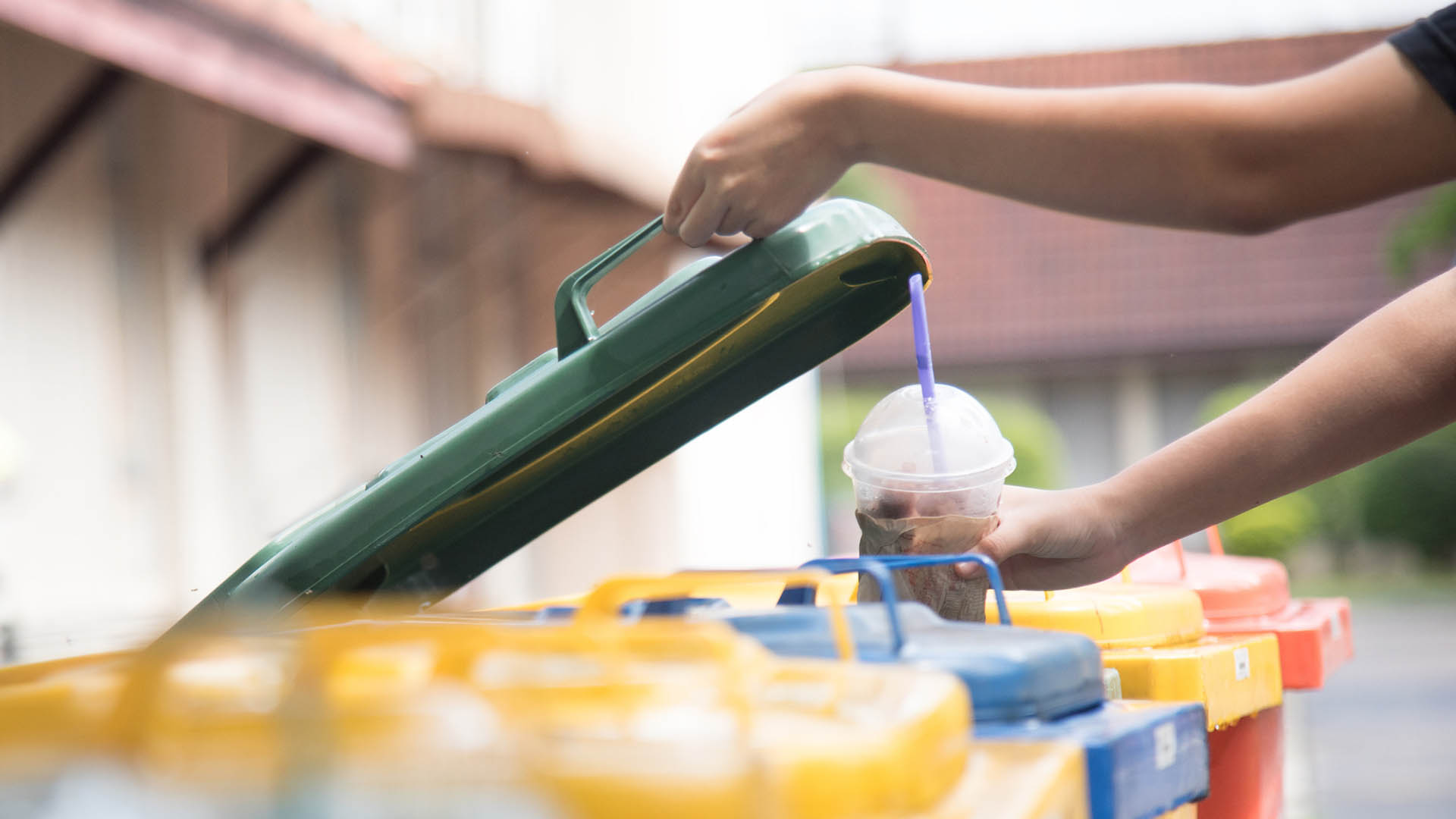How Clean Should Food Containers Be If You Want To Recycle Them?
After cooking dinner, putting away leftovers, cleaning the stove, and washing my plate, you stare at the bit of pasta sauce that's dried around the lip of its glass jar. Do you really need to put forth the extra effort to wash the jar before tossing it in the recycling bin? Does a little bit of extra food really render an item unfit for recycling?
Experts' answer: You have to wash your recyclables—sometimes.
"Since recyclables are all mixed together, the materials—like pasta jars or yogurt containers—need to be free of any food residue," a spokesperson from the trash and recycling company Waste Management tells me. "These materials are all used to make new products and packaging, and the quality of our recyclable materials need to be of very high standards."
The reason that they need to be fairly clean, though, isn't just because the end materials purchaser doesn't want your pizza-grease-smeared cardboard. It's because most of us live in areas that have single-stream recycling, meaning we can toss our glass and our plastic and our paper into the same container, and the recycling company sorts it out later. Because of that, food residue from a jar could easily spill onto cardboard or paper, rendering them unfit to be recycled. Jeremy Walters, community relations manager for the waste and recycling company Republic Services, calls paper and cardboard "collateral damage" of your dirty jar.
"We realize that it would be 100% unrealistic to ask people to put recyclables in the dishwasher or sit down for five minutes with a scrub brush. Really what we ask is a best effort," Walters tells me. "If we're using the pasta sauce example, if you have residual pasta sauce pooling at the bottom of the jar, you do have to get that stuff out. Pooled-up pasta sauce could spill onto paper or cardboard, and we'd have to throw that paper or cardboard away. Squirt some water from the faucet into the jar, swirl it around, and tap it dry."
Making sure recyclables are dry is as important as making sure they're free of food, as water could seep into paper and ruin its potential for recycling. If a container is clean and dry enough not to spill onto other materials, it's clean and dry enough for your recycling bin.
